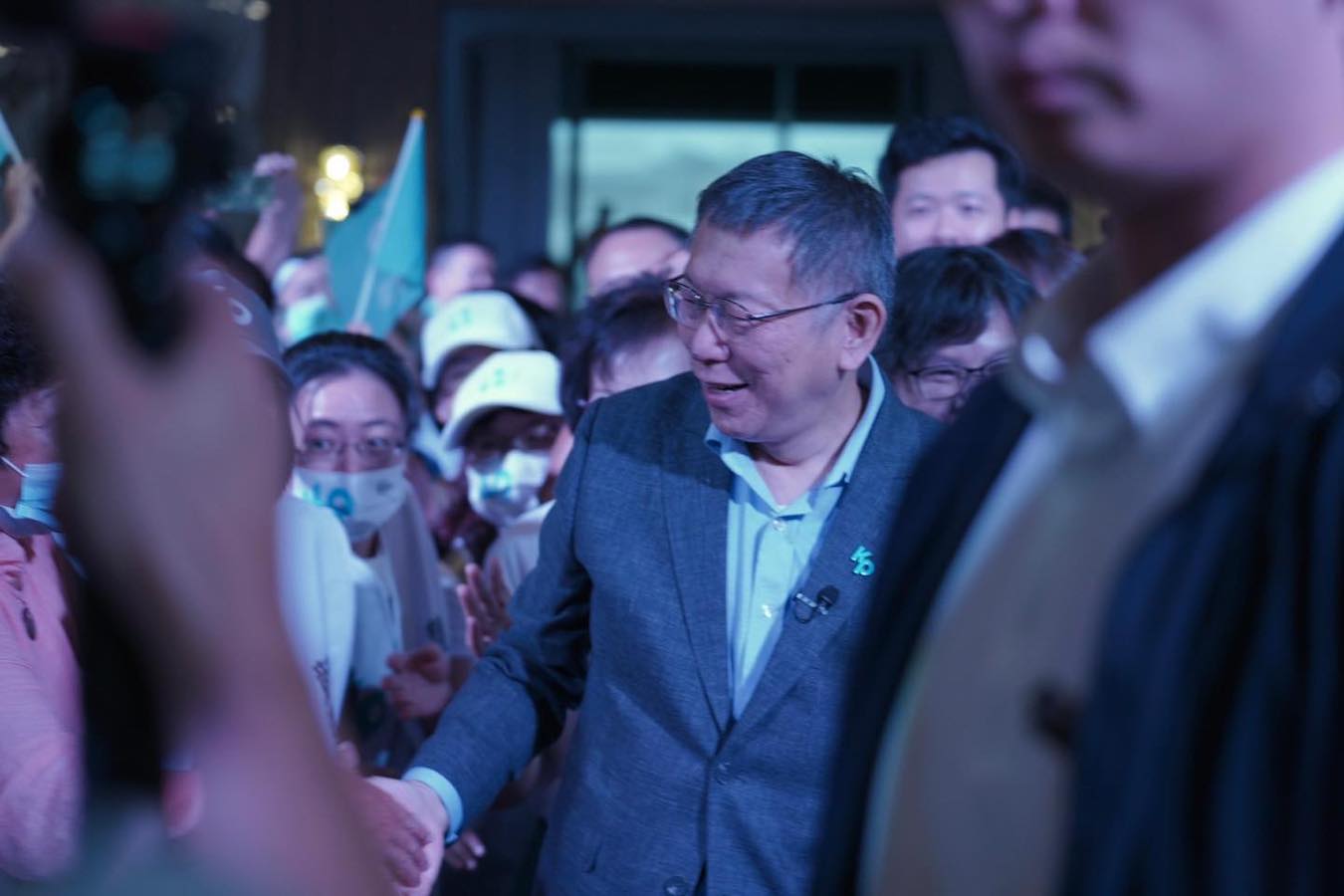by Brian Hioe
語言:
English
Photo Credit: Ko Wen-je/Facebook
AHEAD OF THE January elections, Taiwanese presidential candidates have begun to outline the steps they would take to improve the healthcare system. This takes place even as all candidates are largely in agreement that Taiwan faces fundamental demographic issues regarding its declining birthrate and rising elderly population. As such, the proposed measures take place within this context.
Former Taipei mayor and TPP presidential candidate Ko Wen-je has proposed increasing spending on healthcare from the current 6.6% of the GDP to 8% of the GDP. Likewise, Ko calls for increasing the budget for long-term care to 1%, using funding from a new co-payment system. This would increase the budget for long-term care by four times, with Ko claiming that this is in line with other developed countries.
According to Ko, statistics from the Organization for Economic Cooperation and Development (OECD) show that member countries usually spend 1.7% of their GDP on long-term care, while Taiwan spent only .25% of its GDP, or 56.3 billion NT, on long-term care. Likewise, according to Ko, OECD countries spend 9.7% of the GDP on healthcare, while Taiwan lags behind. Ko would also increase monthly subsidies for skilled care facilities from the current 10,000 NT per person to 30,000 NT per person.
 TPP presidential candidate Ko Wen-je. Photo credit: Ko Wen-je/Facebook
TPP presidential candidate Ko Wen-je. Photo credit: Ko Wen-je/Facebook
For long-term care, a co-payment system along the lines of the National Health Insurance would be established, alongside a “central long-term care insurance bureau”. To this extent, Ko called for the government to take on 40% of co-payments, employers to take on 30%, and employees to take on 30%. Ko claimed that 3.3% of the GDP is spent on the NHI system, while the rest of the GDP is spent on services not covered under the NHI.
Although Ko stated that public satisfaction with the NHI is high, Ko argued that this was far less the case for medical workers. As such, Ko framed his reforms as intended to provide for a more equitable and sustainable healthcare system, also pointing to how Taiwan’s rate of infant mortality is several times higher than South Korea and Japan, and how lifespan also is several years shorter than these countries. Ko further raised questions about how the NHI system was in deficit from 2017 to 2021 and would eventually go bankrupt.
On the other hand, William Lai of the DPP pledged to commit 10 billion NT in funds to prevent cancer deaths, citing that cancer is the highest cause of death in Taiwan. 51,927 died last year of cancer, with cancer remaining the top cause of death in Taiwan for the 41st consecutive year.
Lai has proposed passing a health charter to provide fundamental principles for care, as well as using big data and AI to provide innovative solutions. In particular, Lai’s cancer fund would streamline accessibility to new, advanced treatments.
 DPP presidential candidate William Lai. Photo credit: William Lai/Facebook
DPP presidential candidate William Lai. Photo credit: William Lai/Facebook
Lai, too, would increase subsidies–in this case for long-term health services, tripling the maximum subsidy from over 50,000 NT to 180,000 NT. New measures providing for 24-hour services and new emergency services would be provided. Ko has criticized Lai’s proposed measures as still not doing enough to bring healthcare spending in Taiwan in line with other OECD countries, however.
In the meantime, candidates have largely called for loosening the requirements for hiring migrant caregivers. Apart from that all candidates have called for loosening these requirements, including KMT candidate Hou You-yi and independent candidate Terry Gou, the government already stated that it would relax measures for three categories of individuals, impacting 600,000. This would likely be a move aimed at appealing to the rising elderly population in Taiwan and their family members. It is to be seen how this affects labor policy with regards to migrant workers and the ability of migrant workers to stay in Taiwan.
Both Lai and Ko are doctors. Yet Lai does not lean into his past as a doctor significantly for campaigning, while Ko does, but probably due to less time spent as a doctor and because Ko originally came to public attention as a doctor. At the same time, it has mostly been Ko and Lai that have made significant proposals on healthcare so far during the present election cycle.

